Academics
Academics
PSR Engineering College offers Bachelors and Masters Degree in a variety of fields .
We are offering 7 under graduate programmes (UG) and 6 post graduate programmes(PG). All the programmes are affiliated to Anna University, Chennai and Approved by AICTE, New Delhi. The programmes offered, approved intake for the current academic year in each course is given below.
| S.NO | Programme | Degree Conferred | Duration(YR/SEM) | Sanctioned Annual Intake | ACCREDIATION STATUS |
|---|---|---|---|---|---|
| 1 | Information Technology (IT) | B.Tech | 4/8 | 30 | Not Accredited |
| 2 | Artificial Intelligence & Data Science (AI & DS) | B.TECH | 4/8 | 60 | Not Accredited |
| 3 | Computer Science and Engineering (CSE) | B.E | 4/8 | 120 | Accredited |
| 4 | Electronics & Communication Engineering (ECE) | B.E | 4/8 | 120 | Accredited |
| 5 | Electrical and Electronics Engineering (EEE) | B.E | 4/8 | 60 | Accredited |
| 6 | Biotechnology (BT) | B.TECH | 4/8 | 30 | Accredited |
| 7 | Mechanical Engineering (MECH) | B.E | 4/8 | 120 | Not Accredited |
| 8 | Civil Engineering (CIVIL) | B.E | 4/8 | 120 | Not Accredited |
| 9 | Computer Science and Engineering (CSE) | M.E | 2/4 | 18 | Not Accredited |
| 10 | Applied Electronics (AE) | M.E | 2/4 | 18 | Not Accredited |
| 11 | Structural Engineering (SE) | M.E | 2/4 | 18 | Not Accredited |
| 12 | Power Electronics and Drives (PED) | M.E | 2/4 | 18 | Not Accredited |
| 13 | Engineering Design(ED) | M.E | 2/4 | 18 | Not Accredited |
| 14 | Master of Business Administration (MBA) | MBA | 2/4 | 60 | Not Accredited |
We are admiring our University rank holders during various batches. We honor our teaching and non-teaching staff who enlightened the path for their success.
| S.NO | Reg.No | Name of Student | Branch | CGPA | Rank |
|---|---|---|---|---|---|
| 1 | 1501037 | PRIYADHARSHINI G | CSE | 9.46 | 01 |
| 2 | 1501047 | SELVA PADMAVATHY M | CSE | 9.17 | 02 |
| 3 | 1501030 | MUTHU PREETHA R | CSE | 8.99 | 03 |
| 4 | 1502075 | VINITHA P | ECE | 9.35 | 01 |
| 5 | 1502005 | ANUPRIYA M | ECE | 9.28 | 02 |
| 6 | 1502071 | VIDHYALAKSHMI P | ECE | 9.13 | 03 |
| 7 | 1504032 | SURYA S | EEE | 9.50 | 01 |
| 8 | 1504015 | KARTHIGA K | EEE | 9.21 | 02 |
| 9 | 1504007 | GOKUL S | EEE | 8.76 | 03 |
| 10 | 1505005 | HEMA M | BIOTECH | 8.85 | 01 |
| 11 | 1505014 | RAJAPRIA V | BIOTECH | 8.68 | 02 |
| 12 | 1505021 | SUBHA ASHLEY T | BIOTECH | 8.61 | 03 |
| 13 | 1506066 | RISWAN ARIF HAMEED S | MECH | 9.27 | 01 |
| 14 | 1506047 | MUTHUKUMAR S | MECH | 9.06 | 02 |
| 15 | 1506015 | DEEPANBHARATH R | MECH | 8.97 | 03 |
| 16 | 1507053 | RAJA NIVETHA S | CIVIL | 9.47 | 01 |
| 17 | 1507026 | JEBAMALAR M | CIVIL | 9.36 | 02 |
| 18 | 1507042 | MURUGALAKSHMI G | CIVIL | 9.13 | 03 |
| 19 | 1722047 | SENTHIL KUMARI V | MBA | 9.14 | 01 |
| 20 | 1722034 | NISHA NANDINI N S | MBA | 9.00 | 02 |
| S.NO | Reg.No | Name of Student | Branch | CGPA | Rank |
|---|---|---|---|---|---|
| 1 | 1401011 | JEYANTHI V | CSE | 9.12 | 01 |
| 2 | 1401038 | SIVAGAMASUNDARI V | CSE | 8.89 | 02 |
| 3 | 1401039 | SOPHIA SALETH MARY V | CSE | 8.87 | 03 |
| 4 | 1402028 | MADHANA I | ECE | 9.51 | 01 |
| 5 | 1402025 | KARPAGALAKSHMI N | ECE | 8.94 | 02 |
| 6 | 1402044 | PADMAVATHY A | ECE | 8.89 | 03 |
| 7 | 1404021 | MAHALAKSHMI R | EEE | 9.14 | 01 |
| 8 | 1404017 | KARTHIKA M | EEE | 8.99 | 02 |
| 9 | 1404031 | PAVITHRA S | EEE | 8.95 | 03 |
| 10 | 1405013 | JEMIMA ROMOLA C V | BIOTECH | 9.21 | 01 |
| 11 | 1405024 | SHANKARI S | BIOTECH | 9.04 | 02 |
| 12 | 1405023 | SELVAKUMAR M | BIOTECH | 8.85 | 03 |
| 13 | 1406071 | SARAVANAN M | MECH | 8.83 | 01 |
| 14 | 1406100 | VISHNU P | MECH | 8.81 | 02 |
| 15 | 1406090 | THANGAMADASAMY M | MECH | 8.74 | 03 |
| 16 | 1407058 | NITHYA SUBHASREE S | CIVIL | 9.32 | 01 |
| 17 | 1407310 | RAJAGURU M | CIVIL | 9.03 | 02 |
| 18 | 1407026 | JEYARANI K | CIVIL | 9.02 | 03 |
| 19 | 1622001 | AGHALYA V | MBA | 9.46 | 01 |
| 20 | 1622028 | PANNAIARASI PADMA M | MBA | 9.42 | 02 |
| S.NO | Reg.No | Name of Student | Branch | CGPA | Rank |
|---|---|---|---|---|---|
| 1 | 1301026 | KRISHNA VENI M | CSE | 9.10 | 01 |
| 2 | 1301012 | DIVYA S | CSE | 8.93 | 02 |
| 3 | 1301027 | KRISHNAVENI G | CSE | 8.59 | 03 |
| 4 | 1302051 | MUTHUMARI C | ECE | 9.09 | 01 |
| 5 | 1302080 | SHANTHI V | ECE | 8.96 | 02 |
| 6 | 1302001 | ABINAYA R | ECE | 8.88 | 03 |
| 7 | 1304013 | BHUVANESWARI K | EEE | 9.32 | 01 |
| 8 | 1304317 | VAIRAMUTHU P | EEE | 9.24 | 02 |
| 9 | 1304009 | AUSTIN R | EEE | 9.02 | 03 |
| 10 | 1305008 | KARTHICK RAJA N | BIOTECH | 8.97 | 01 |
| 11 | 1306008 | ARUL SELVAM A | MECH | 9.12 | 01 |
| 12 | 1306101 | VENKATESWARAN P | MECH | 9.08 | 02 |
| 13 | 1306050 | MUTHUKUMARAN K | MECH | 9.04 | 03 |
| 14 | 1307061 | NARMADHA M | CIVIL | 9.20 | 01 |
| 15 | 1307042 | LYDIA J | CIVIL | 9.12 | 02 |
| 16 | 1307083 | SARANYA R | CIVIL | 9.03 | 03 |
| 17 | 1522026 | PANDISELVI E | MBA | 8.99 | 01 |
| 18 | 1522010 | JEYALAKSHMI K | MBA | 8.97 | 02 |
| S. No | Reg.No | Name of the Student | Branch | CGPA | Rank |
|---|---|---|---|---|---|
| 1 | 1201066 | SHENBAGA DEVI. M | CSE | 8.90 | 01 |
| 2 | 1201022 | KALPANA.K | CSE | 8.65 | 02 |
| 3 | 1201007 | BRINDHA.V | CSE | 8.61 | 03 |
| 4 | 1202038 | KIRTI VYAS.R | ECE | 9.34 | 01 |
| 5 | 1202039 | KRISHNAPRAKASH.G.S | ECE | 9.27 | 02 |
| 6 | 1202106 | VISHNUDEVI.A.N | ECE | 9.04 | 03 |
| 7 | 1204004 | ANANTHALAKSHMI.M | EEE | 9.17 | 01 |
| 8 | 1204049 | VETRISELVI.P.M | EEE | 8.81 | 02 |
| 9 | 1204024 | MADHUBALA.S | EEE | 8.74 | 03 |
| 10 | 1205015 | RADHIKA RAJAM.R | BIOTECH | 8.93 | 01 |
| 11 | 1206319 | SUNDARRAJAN.P | MECH | 9.16 | 01 |
| 12 | 1206015 | BHARATH KUMAR.K | MECH | 9.06 | 02 |
| 13 | 1206108 | VEETAIYAR.K.R | MECH | 8.98 | 03 |
| 14 | 1207050 | SHAKTHI ANANTHI.C | CIVIL | 9.14 | 01 |
| 15 | 1207052 | SWATHI.T | CIVIL | 9.06 | 02 |
| 16 | 1207008 | ARUL SELVAM.K | CIVIL | 8.86 | 03 |
| 17 | 1422052 | VINITHA.N | MBA | 9.13 | 01 |
| 18 | 1422014 | IVELRANI.M | MBA | 8.71 | 02 |
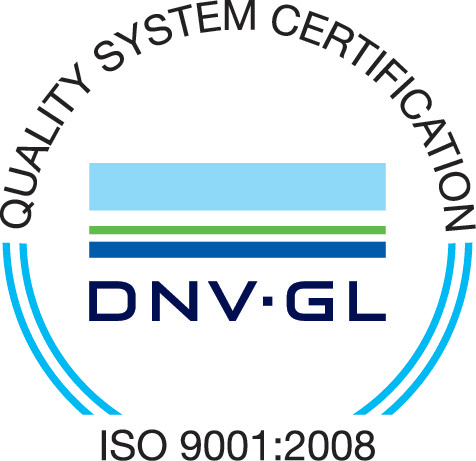
ISO - International Standards Organisation is a world wide federation of national standard bodies. The third edition of ISO standard for a quality management system is ISO 9001:2008 The adoption of a quality management system should be a strategic decision of an organisation. The design and implementation of our organization's quality management system is influenced by varying needs, particular objectives, the products provided, the processes employed and the size and structure of the organisation.
The QMS requirements specified in ISO 9001 are by internal and external parties to assess the organisation's ability to meet customer's requirements
This international standard promotes the adoption of a process approach when developing, implementing and improving the effectiveness of a QMS to enhance satisfaction by meeting customer requirements
ISO 9001:2008 , as applied to an educational institution, incorporates transparency in the educational system, enhances the quality of teaching - learning process by regular follow up, feed back and improvement
PSR has signed Memorandum of Understanding (MoU) with the following industries to attain a symbiosis and to reduce the gap between Industry expectations (Practice) and Academic Offerings (Theory) by direct involvement of Industries.
CCNA Certificate validates Professional Students ability to install, configure, operate and troubleshoot medium size route and switched networks. CCNA Curriculum includes basic mitigation of security threats, and wireless networking concepts. It is a performance based examination. It also includes use of protocols, IP, EIGRP RIPV2, VLANS, Ethernet, ACL.
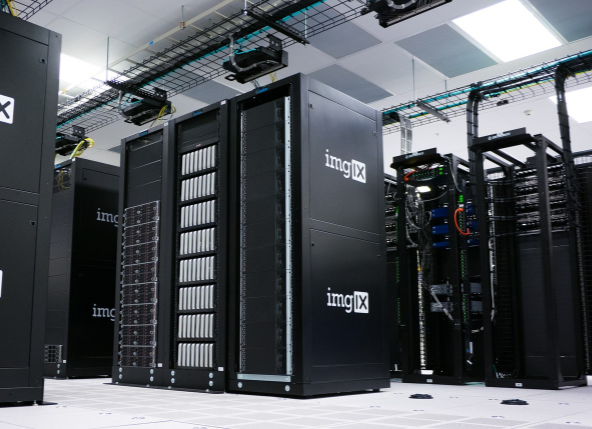
The Cisco Networking Academy is a world-wide Networking Organization to teach the younger generation with the help of technology in the field of Education. The main objective of the CISCO ACADEMY is to meet out the growing demands for the Network working professionals and to offer quality training to earn globally recognized certification. It lays foundation to the younger professional students through modern Internet Technology to get employment and better knowledge input. Networking Academy helps individuals to prepare for industry-recognized certifications and entry-level information and communication technology (ICT) careers in every Industrial sector. It offers fruitful courses to empower students to become powerful networking professionals.
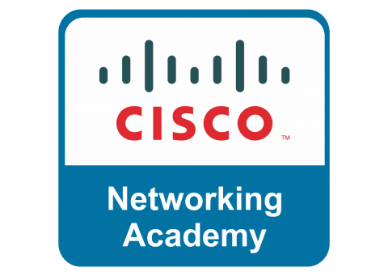
P.S.R. Engineering College became ACADEMY OF CISCO on June 2012. It enabled the institution to offer CCNA courses to all the aspirants of NETWORKING. The successful completion of the course makes every aspiring student to become certified as a CISCO Certified Network Associate (CCNA). The certification of CISCO benefits the younger Engineering professionals to get more acclaim and better job prospects.
PSREC offers CCNA course with all the state-of-the-art technology and facility to teach the young aspirants. It trains forty students for the two modules in CCNA with the assistance of CISCO NETWORKING ACADEMY.
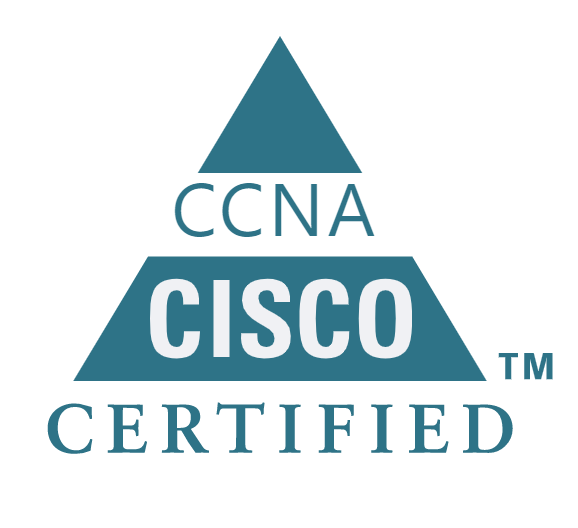
PC Hardware and Software curriculum provides an introduction to the computer hardware .Software skills is essential to meet the growing demand for entry-level information and communication technology (ICT) professionals. The curriculum covers the fundamentals of PC technology, networking, and security, and also provides an introduction to advanced concepts.
The course gives confidence over the aspirants to describe the internal components of a computer, assemble a computer system, install an operating system, and troubleshoot using system tools and diagnostic software. Hands-on labs and Virtual Laptop and Virtual Desktop learning tools help students develop critical thinking and complex problem-solving skills. Cisco Packet Tracer simulation-based learning activities promote the exploration of network and networking security concepts and allow learners to experiment with network behaviour.
PC Hardware and Software is a hands-on, career-oriented e-learning solution with an emphasis on practical experience. The course provides a learning pathway to the CCNA Discovery and CCNA Exploration curricula. It helps the students to develop fundamental computer skills, along with essential career skills. The curriculum helps students prepare for entry-level ICT career opportunities and the CompTIA A+ certification, which helps students to differentiate themselves with the marketplace to advance their careers.
The Cisco CCNA Exploration curriculum provides an integrated and comprehensive coverage of networking topics, from fundamentals to advanced applications and services, while providing opportunities for hands-on practical experience and soft-skills development. The curriculum teaches networking based on technology, covering networking concepts using a top-down, theoretical, and integrated approach – from network applications to the network protocols and services provided to those applications by the lower layers of the network.
CCNA Exploration is designed for students with advanced problem solving and analytical skills. The curriculum offers a comprehensive and theoretical learning experience for analytical students, and uses language that aligns well with engineering concepts. Interactive activities are embedded in the curriculum, along with detailed, theoretical content. Advanced labs build critical thinking and problem solving skills and encourage exploration and research. This course is highly suitable for professional students to achieve their educational goals.
CCNA Exploration helps to prepare students for entry-level career opportunities, continuing education, and globally-recognized Cisco CCNA certification.
Cisco Packet Tracer is a powerful network simulation program that allows students to experiment with network behavior and ask “what if†questions. As an integral part of the Networking Academy comprehensive learning experience, Packet Tracer provides simulation, visualization, authoring, assessment, and collaboration capabilities and facilitates the teaching and learning of complex technology concepts. This course offers complete support to every student to create a network with an almost unlimited number of devices, encouraging practice, discovery, and troubleshooting. This learning brings better and desired results among every aspirant to meet out workplace requisites. The ultimate benefit of the course is that every technical concept is illustrated with the latest equipments.
Dr. K. Ruba Soundar
Professor & Head,Dept. of Computer Science Engineering,
PSR Engineering College,
Sevalpatti | Sivakasi - 626 140 | Virudhunagar District | Tamil Nadu | India.
Email : rubasoundar@psr.edu.in
Dr.S.PRIYADARSINI
Associate Professor,
Dept. of Computer Science Engineering,
PSR Engineering College,
Sevalpatti, Sivakasi - 626 140,
Virudhunagar District,
Tamil Nadu, India.
Email : priyadarshini@psr.edu.in
| S.No | Name of the Student | Branch | Year | |
|---|---|---|---|---|
| 1 | R. Arunchandru | CSE | Second Year | arunchandru2221999@gmail.com |
| 2 | A. Kalirajan | CSE | Second Year | kalirajan256@gmail.com |
| 3 | R. Guru Ganesh | CSE | Second Year | gurussj3@gmail.com |
| 4 | M. Logesh | CSE | Second Year | mlogesh289@gmail.com |
| 5 | P. Kamal Anand | CSE | Second Year | kamalskv57@gmail.com |
| 6 | M. Balasubramani | CSE | Second Year | suryabala1601016@gmail.com |
| 7 | C. Sheirly Twinkle | CSE | Third Year | sherlechristo@gmail.com |
| 8 | K. Muthu Bavani | CSE | Third Year | kmuthubavani@gmail.com |
| 9 | C. Kasirajapandian | CSE | Third Year | kasiraja1001@gmail.com |
| 10 | P. Shanmugamram | CSE | Third Year | psr.ganesho@gmail.com |
| 11 | K. Sanchikannan | CSE | Third Year | sanchikannan@gmail.com |
| 12 | S. Vinoth | CSE | Third Year | vinothkarthi97@gmail.com |
| 13 | S. Jayakumar | CSE | Third Year | jkrpkumar@gmail.com |
| 14 | R. Chendhurmurugan | CSE | Third Year | chendhur007@gmail.com |
| 15 | A. Hariharan | IT | Final Year | hariharanit@yahoo.com |
| 16 | H. Fazil seyad ali | CSE | Final Year | hfazil2020@gmail.com |
| 17 | G. Sanjay Kannan | CSE | Final Year | sanjaykannan12@gmail.com |
Dr.K.RUBA SOUNDAR
Professor & Head,
Dept. of Computer Science Engineering,
PSR Engineering College,
Sevalpatti, Sivakasi – 626 140,
Virudhunagar District,
Tamil Nadu, India.
Email :Â rubasoundar@psr.edu.in
Dr.S.PRIYADARSINI
Associate Professor,
Dept. of Computer Science Engineering,
PSR Engineering College,
Sevalpatti, Sivakasi – 626 140,
Virudhunagar District,
Tamil Nadu, India.
Email :Â priyadarshini@psr.edu.in
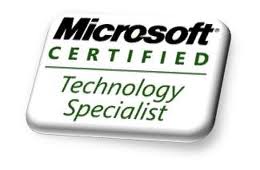
A Microsoft Certified Technology Specialist certification proves skills on a particular Microsoft technology, such as a Windows operating system, Microsoft Exchange Server, Microsoft SQL Server, or Microsoft Visual Studio.
| S. No | Name of the Student | Branch | Year | |
|---|---|---|---|---|
| 1 | V. BHUVANESHWARI | CSE | Final Year | - |
| 2 | S. ANUSUYA DEVI | CSE | Final Year | - |
| 3 | N.JAYANTHI NATHAN | CSE | Final Year | - |
| 4 | P. SOORIYA PRAKKASH | CSE | Final Year | - |
| 5 | K.ARAVIND | IT | Final Year | - |
| 6 | D. SELVAKUMAR | IT | Final Year | - |
| 7 | S. ARAVIND | IT | Final Year | - |
| 8 | M. MOHANLAL | IT | Final Year | - |
| 9 | S. AARTHI | IT | Final Year | - |
| 10 | D. AMRISHA | IT | Final Year | - |
| 11 | M. PONBANU | IT | Final Year | - |
| 12 | G. MAREESWARI | IT | Final Year | - |
| 13 | M. MANGALESHWARI | IT | Final Year | - |
| 14 | R. ABINAYA | ECE | Final Year | - |
| 15 | M. ARVIND MURUGESAN | ECE | Final Year | - |
| 16 | G. BALA KRISHNAN | ECE | Final Year | - |
| 17 | S. BALAJI | ECE | Final Year | - |
| 18 | S. BALAMURUGAN | ECE | Final Year | - |
| 19 | M. CHINNARAJA | ECE | Final Year | - |
| 20 | P. DEEPA | ECE | Final Year | - |
| 21 | K. DHANALAKSHMI | ECE | Final Year | - |
| 22 | K. DIVYA | ECE | Final Year | - |
| 23 | S. GAYATHRI | ECE | Final Year | - |
| 24 | K. GURU PRAKASH | ECE | Final Year | - |
| 25 | J. JAMES RAJKUMAR | ECE | Final Year | - |
| 26 | A. KAYALVIZHI | ECE | Final Year | - |
| 27 | Y. KETHSIYAL | ECE | Final Year | - |
| 28 | H. LAHOOTH VASHIQUE IMRAHN | ECE | Final Year | - |
| 29 | M. MAHESH | ECE | Final Year | - |
| 30 | P. MALATHI | ECE | Final Year | - |
| 31 | M. MUTHUSELVI | ECE | Final Year | - |
| 32 | R. NAGARAJAN | ECE | Final Year | - |
| 33 | M. VAISHNAVI | ECE | Final Year | - |
| 34 | D. RAJESH | ECE | Final Year | - |
| 35 | S. ASHOK KUMAR | ECE | Final Year | - |
| S. No | Name of the Student | Branch | Year | |
|---|---|---|---|---|
| 1 | S.NANDAKUMAR | CSE | Final Year | - |
| 2 | S.ANIRUTH | CSE | Final Year | - |
| 3 | B.VIJARAJAN | CSE | Final Year | - |
| 4 | R.ARUNPANDIYAN | CSE | Final Year | - |
| 5 | G.KIRUBAKARAN | CSE | Final Year | - |
| 6 | P.ILAVARASAN | CSE | Final Year | - |
| 7 | C.ARUNPANDIAN | CSE | Final Year | - |
| 8 | G.MARIMUTHU | CSE | Final Year | - |
| 9 | S.SUGANYA | CSE | Final Year | - |
| 10 | K.VIJAYAMOHESWARI | CSE | Final Year | - |
| 11 | G.SAVEETHA | ECE | Final Year | - |
| 12 | E.KASILAKSHMI | ECE | Final Year | - |
| 13 | M.SARADHA | ECE | Final Year | - |
| 14 | A.SWEETYLINBLESSY | ECE | Final Year | - |
| 15 | A.MAHESH | ECE | Final Year | - |
| 16 | M.MARIAPPAN | ECE | Final Year | - |
| 17 | R.ALLWIN | ECE | Final Year | - |
| 18 | R.SWARNAMUKI | ECE | Final Year | - |
| 19 | L.INDHU | ECE | Final Year | - |
| 20 | K.JOTHILAKSHMI | ECE | Final Year | - |
| 21 | M.KARTHIGA | CSE | Final Year | - |
| 22 | U.SHANMUGA VADIVU | CSE | Final Year | - |
| 23 | M.PREETHY | CSE | Final Year | - |
| 24 | M.GAYATHRI | IT | Final Year | - |
| 25 | S.BHAGAVATH GEETHA | IT | Final Year | - |
| 26 | R.PRABATH | IT | Final Year | - |
| 27 | S.VIGNESH | IT | Final Year | - |
| 28 | N.VIGNESHWAR | IT | Final Year | - |
Mrs. S.Priyadarsini
Associate Professor,
Dept. of Computer Science Engineering,
PSR Engineering College,
Sevalpatti, Sivakasi – 626 140,
Virudhunagar District,
Tamil Nadu, India.
Email :Â priyadarsini@psr.edu.in

Creo Elements/Pro (formerly Pro/ENGINEER) allows to immediately realize the proven performance of PTC’s industry-leading design solutions today while putting on the path to achieve break-through productivity gains with Creo. Creo Elements/Pro 5.0 offers numerous enhancements that enable users to overcome the key barriers to design productivity.
Mr.S.Veera Saravanakumar,Assistant Professor
Dept. of Mechanical Engineering,
PSR Engineering College,
Sevalpatti, Sivakasi - 626 140,
Virudhunagar District,
Tamil Nadu, India.
Email : veerasaravanakumar@psr.edu.in
Mr.P.Ebenezer Sathish Paul,Assistant Professor,
Dept. of Mechanical Engineering,
PSR Engineering College,
Sevalpatti, Sivakasi - 626 140,
Virudhunagar District,
Tamil Nadu, India.
Email : ebenezer@psr.edu.in
| S. No | Name of the Student | Branch | Year | |
|---|---|---|---|---|
| 1 | Ayyanar.C | MECH | Final Year | |
| 2 | Balamurugan.G | MECH | Final Year | |
| 3 | Chenthatikalai.P | MECH | Final Year | |
| 4 | Dinesh Kumar.S | MECH | Final Year | |
| 5 | Durairaj.S | MECH | Final Year | |
| 6 | Gokul.N | MECH | Final Year | |
| 7 | Jeyakarthikeyan.R | MECH | Final Year | |
| 8 | Kathiravan.S | MECH | Final Year | |
| 9 | Manohar.J | MECH | Final Year | |
| 10 | Mareeswaran.M | MECH | Final Year | |
| 11 | Mithun Chakkaravarthi.M | MECH | Final Year | |
| 12 | Mohammed Musthapa.I | MECH | Final Year | |
| 13 | Mohindharragu.M | MECH | Final Year | |
| 14 | Muralisundar.R | MECH | Final Year | |
| 15 | Muthupandi.P | MECH | Final Year | |
| 16 | Praveen.G.V | MECH | Final Year | |
| 17 | Ramalakshmanan.G | MECH | Final Year | |
| 18 | Ravikumar.S | MECH | Final Year | |
| 19 | Rengarajan.J | MECH | Final Year | |
| 20 | Sajithkumar.S | MECH | Final Year | |
| 21 | Saravanakarthick.P | MECH | Final Year | |
| 22 | Shaju.S | MECH | Final Year | |
| 23 | Sivanantham.S | MECH | Final Year | |
| 24 | Siva Prakash.P | MECH | Final Year | |
| 25 | Suresh.A.N | MECH | Final Year | |
| 26 | Thiruppathiraj.M | MECH | Final Year | |
| 27 | Vijay.A | MECH | Final Year | |
| 28 | K.S.Ashok Kumar | MECH | Final Year | |
| 29 | R.Bala Murugan | MECH | Final Year | |
| 30 | J.Narasimman | MECH | Final Year | |
| 31 | S.Ramesh | MECH | Final Year | |
| 32 | S.Ram Prasad | MECH | Final Year | |
| 33 | S.R.Selva Kumar | MECH | Final Year | |
| 34 | P.Thangavel | MECH | Final Year | |
| 35 | P.Velladurai | MECH | Final Year | |
| 36 | N.Vignesh | MECH | Final Year |
Mr.S.Veera Saravanakumar,
Assistant Professor,
Dept. of Mechanical Engineering,
PSR Engineering College,
Sevalpatti, Sivakasi – 626 140,
Virudhunagar District,
Tamil Nadu, India.
Email :Â veerasaravanakumar@psr.edu.in
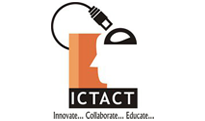
ICTACT has been implementing various skill development initiatives for up-skilling the teachers in the ICT domain thereby benefitting the students to become employable in the state of Tamil Nadu. ICTACT has launched SKILLEDGE – a skill development initiative dedicated to create & enhance employability skills among the graduating students in both Engineering and Arts & Science Colleges.
Mrs. S.AMUTHA
Co-ordinator,
Dept. of Computer Science & Engineering,
PSR Engineering College,
Sevalpatti, Sivakasi – 626 140,
Virudhunagar District,
Tamil Nadu, India.
Email :Â amutha@psr.edu.in
Mrs. M.PIRAMU
Member,
Dept. of Computer Science & Engineering,
PSR Engineering College,
Sevalpatti, Sivakasi – 626 140,
Virudhunagar District,
Tamil Nadu, India.
Email :Â piramu@psr.edu.in
The "PC Hardware Servicing and Installation" training course is to resolve common hardware & software related problems, peripheral problems and diagnose simple network problems.
This training course is conducted to our students from various departments of our college.
Mrs. S.AMUTHA,
Asso. Professor(Senior Grade),
Dept. of Computer Science & Engineering,
PSR Engineering College,
Sevalpatti, Sivakasi – 626 140,
Virudhunagar District,
Tamil Nadu, India.
Email :Â amutha@psr.edu.in
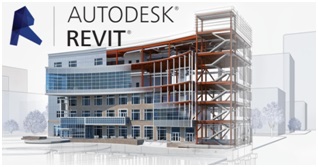
Autodesk Revit is building information modeling software for architects, landscape architects, structural engineers, MEP engineers, designers and contractors developed by Autodesk. It allows users to design a building and structure and its components in 3D, annotate the model with 2D drafting elements, and access building information from the building model's database. Revit is 4D BIM capable with tools to plan and track various stages in the building's lifecycle, from concept to construction and later maintenance and/or demolition.
Mr.M.VENKADASUBRAMANIAN,
Assistant Professor,
Dept. of Civil Engineering,
PSR Engineering College,
Sevalpatti, Sivakasi – 626 140,
Virudhunagar District,
Tamil Nadu, India.
Email :Â venkadasubramanian@psr.edu.in
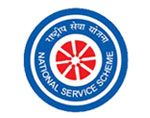
National Service Scheme (NSS) is a forum where students can directly interact and serve the society. The NSS unit of our Institute is regularly serving the people of the villages in and around the Institute. Few of the activities of NSS are given below:
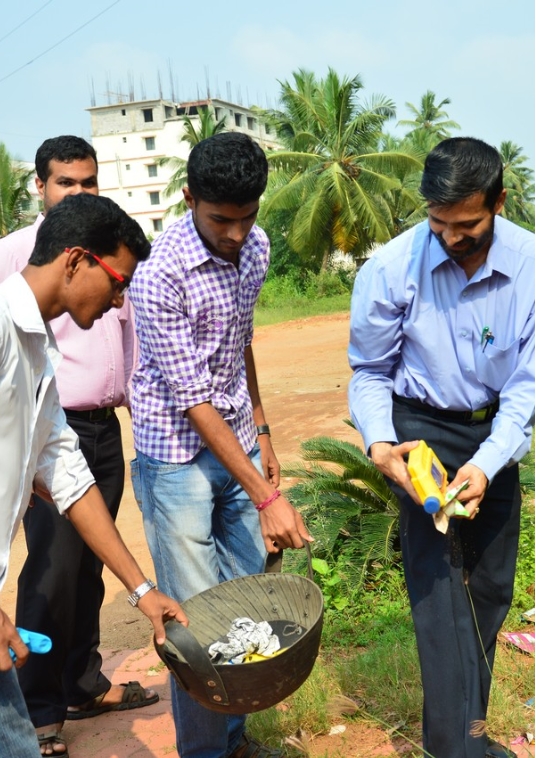








1.Mr.P.DURKAI ESWARAN
Programme Officer, Mechanical Department.
Email : durkaieswaran@psr.edu.in
2.Mr.A.PRAKASH
Member, Physical Education Director.
Email : prakash@psr.edu.in

National Cadet Corps sub-unit (Army wing) of our Institution was started in the year 2019. Theunit is affiliated to 29 (TN) Independent Coy NCC, Thoothukudi, with the strength 50 cadets. Both boys and girls are eligible for enrolment as cadets.
To develop character, comradeship, discipline, a secular outlook, the spirit of adventure and ideals of selfless service amongst young citizens.
To create a pool of organized, trained and motivated youth with leadership qualities in all walks of life, who will serve the Nation regardless of which career they choose.
To provide aconducive environment to motivating young Indians to join the armed forces.
The NCC in India was formed with the National Cadet Corps Act of 1948. It was raised on 15thJuly 1948. The National Cadet Corps can be considered as a successor of the University Officers Training Corps (UOTC) which was established by the British in 1942. During World War II, the UOTC never came up to the expectations set by the British. This led to the idea that some better schemes should be formed, which could train more young men in a better way, even during peace times. A committee headed by Pandit H.N. Kunzru recommended a cadet organization to be established in schools and colleges at a national level. The National Cadet Corps Act was accepted by the Governor General and on 15thJuly 1948 the National Cadet Corps came into existence.
During the 1965 and 1971 wars with Pakistan, NCC cadets were the second line of defence. They organised camps to assist the ordinance factories, supplying arms and ammunition to the front, and also were used as patrol parties to capture the enemy paratroopers. The NCC cadets also worked hand in hand with the Civil Defence authorities and actively took part in rescue work and traffic control. After the 1965 and 1971 Indo-Pak wars the NCC syllabus was revised. Rather than just being the second line of defence, NCC syllabus laid a greater stress on developing qualities of leadership and Officer-like qualities. The military training which the NCC cadets received was reduced and greater importance was given to other areas like social service and youth-management.
To Create a Human Resource of Organized, trained and Motivated Youth.
To Provide Leadership in all Walks of life and be Always Available for the Service of the Nation.
To Provide a Suitable Environment to Motivate the Youth to Take Up a Career in the Armed Forces.
To Develop Character, Comradeship, Discipline, Leadership, Secular Outlook, Spirit of Adventure and Ideals of Selfless Service amongst the Youth of the Country.
The need for having motto for the Corps was discussed in the 11thCentral Advisory Committee (CAC) meeting held on 11thAug 1978. The mottos suggested were “Duty and Discipline”; “Duty, Unity and Discipline”; “Duty and Unity”; “Unity and Discipline”. The final decision for selection of “Unity and Discipline” as motto for the NCC was taken in the 12thCAC meeting held on 12thOct 1980.
The NCC is a responsive, learning and continuously evolving organization. Its activity is guided by certain core values that we endeavor to instill among all ranks of the NCC. These include the following:-
A sense of patriotic commitment to encourage cadets to contribute to national development.
Respect for diversities in religion, language, culture, ethnicity, life style and habitat to instill a sense of National unity and social cohesion.
Abiding commitment to learn and adhere to the norms and values enshrined in the Indian Constitution.
Understanding the value of a just and impartial exercise of authority.
Ability to participate in community development and other social programme.
A healthy life style free of substance abuse and other unhealthy practices.
Sensitivity to the needs of poor and socially disadvantaged fellow citizens.
Inculcating habits of restraint and self-awareness.
Understanding the values of honesty, truthfulness, self-sacrifice, perseverance and hard work.
Respect for knowledge, wisdom and the power of ideas.
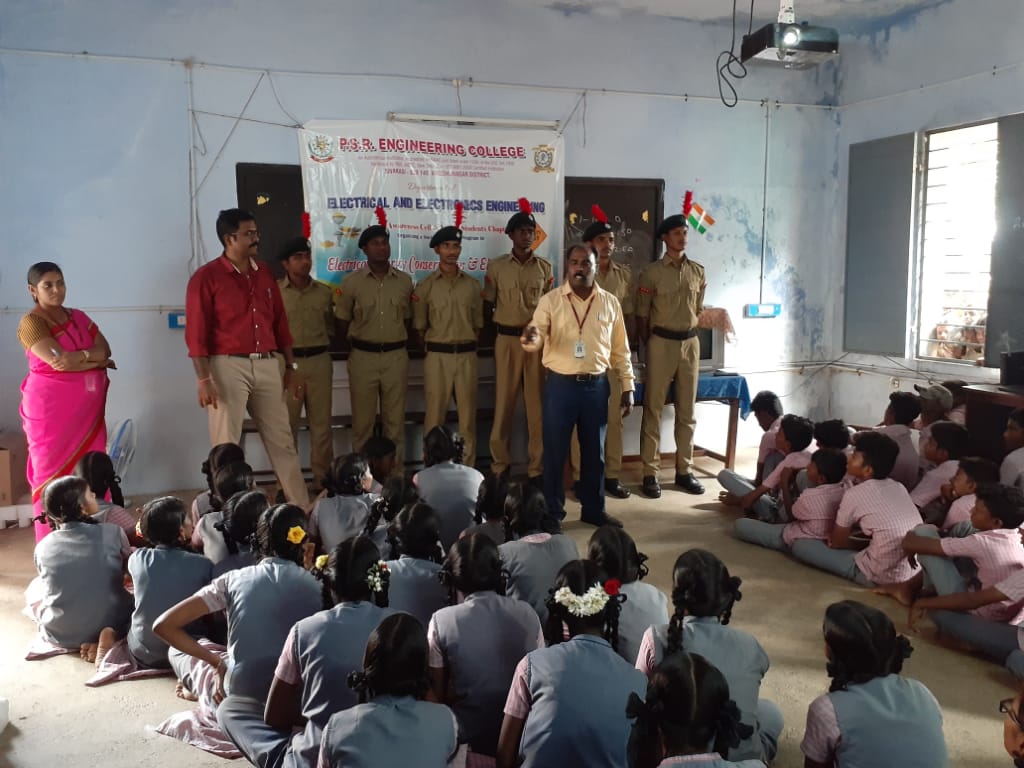
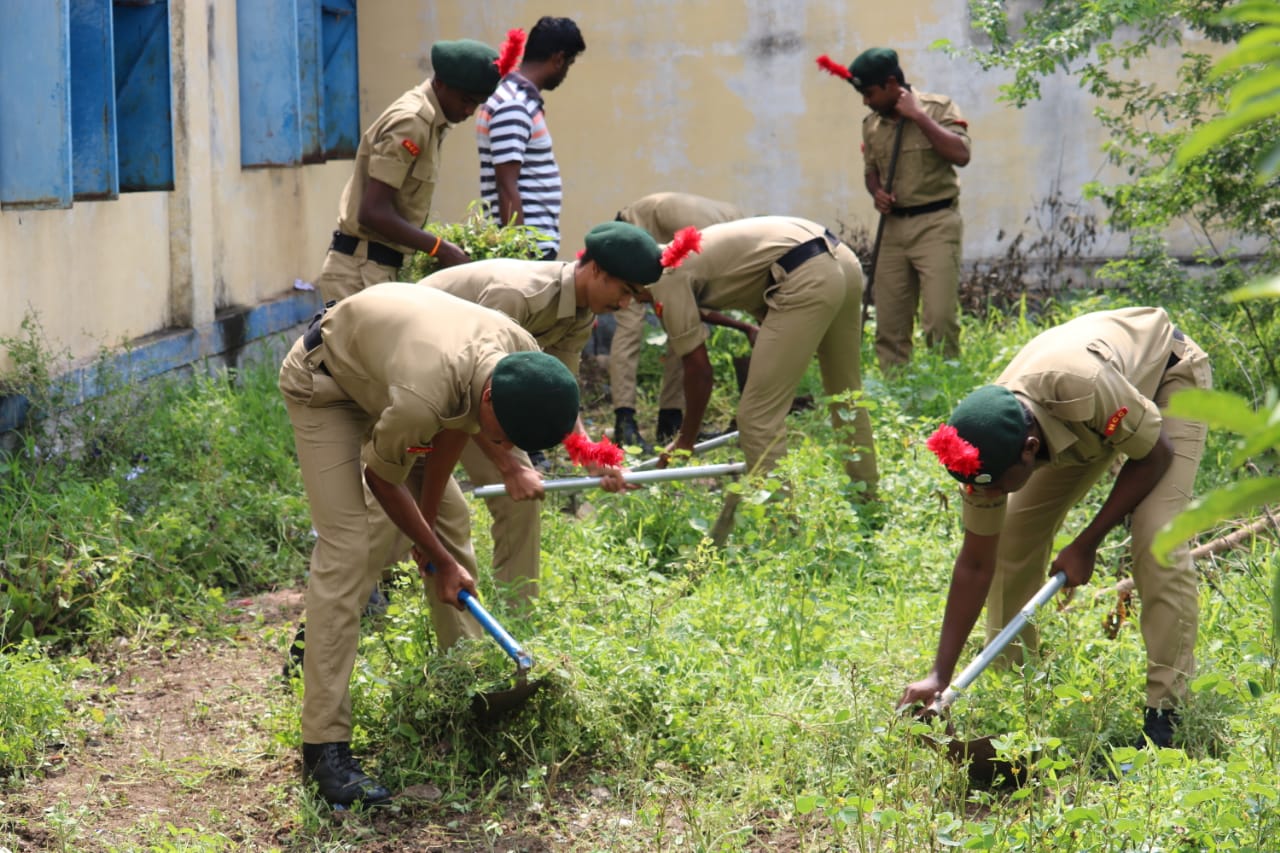
NCC CARE TAKER
Dr.R.MADAVAN
Associate Professor and Head ,
Department of EEE.
P.S.R. Engineering College
Sivakasi – 626140
Mobile: 9952297231
Email : ncc@psr.edu.in
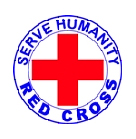
The Youth Red Cross is an international organisation meant for humanitarian services. It is a non-religious, non-political and a non-sectarian international body.
The YRC unit is a group movement organised for the students in the colleges. Participation of students in YRC would mould them to become better citizens and make them sensitive to the mounting social problems in the country.
Protection of Health and Life, Service to the sick and the suffering by organising.
The main objectives of National Service Scheme (NSS) are :
1.Mr.S.Athimoolam
Programme Officer, ECE Department.
Email : athimoolam@psr.edu.in
2.Mr.A.Prakash
Member, PED.
Email : prakash@psr.edu.in

Red Ribbon Club is a movement started by the Government through which the students are educated about the awareness on AIDS, health programmes, personality development etc.
Red like Love, as a symbol of passion and tolerance for those affected..
The main objectives of National Service Scheme (NSS) are :
CONTACTS
1. Mr.S.Balasubramanian
Programme Officer, ECE Department.
Email : balasubramanian@psr.edu.in
2. Mr.A.Prakash
Member, PED.
Email : prakash@psr.edu.in
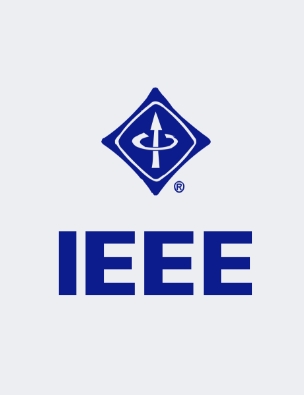
IEE chapter an unique organization for creating opportunities for the professional students to organize conferences,seminar programmes. It has pioneered in leading the other branch students for their active participation since 2004. It has been the active chapter for many long years.
It periodically offers enough scope for the professional students to express their ideas, updating the knowledge of fast changing technologies of the contemporary. The chapter ensures students extra-curricular activities, their capability and personality. The effort taken by our student branch to produce proficient and competent Engineers is commendable.
CONTACTS
1. Dr.S.RAMESH
Branch Counsellor,EEE Dept
Email :Â s.ramesh@psr.edu.in
2. Mr.P.GOVINDAMOORTHI
Member,ECE Dept
Email :Â govindamoorthi@psr.edu.in
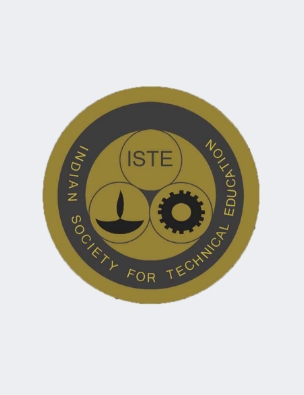
The Indian Society for Technical Education (ISTE) is a national, professional, non-profit making society registered under the Societies Registration Act of 1860. First started in 1941 as the Association of Principals of Technical Institutions (APTI), it was converted into “Indian Society for Technical Education” in 1968 with a view to enlarge its activities to advance the cause of technological education. The ISTE Chapter has been established at our college and functioning from the year 2004. The objective of the ISTE Chapter is to keep the faculty members of the College updated about the recent technologies. The Institute arranges lectures thrice in one semester and invites eminent personalities from Industries and other Organizations to deliver lecture at our campus. The topics of the lectures are decided by the speakers. These topics are related to their work experience at their organization.
CONTACTS
1. Dr.A.RAMATHILAGAM
Staff Coordinator, Dept of CSE
Email :Â ramathilagam@psr.edu.in
2. Mr.P.RAJA
Member,Mech Dept
Email :Â raja@psr.edu.in
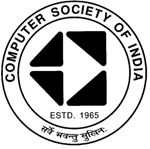
The seed for the Computer Society of India (CSI) was first sown in the year 1965 with a handful of IT enthusiasts who were a computer user group and felt the need to organize their activities. They also wanted to share their knowledge and exchange ideas on what they felt was a fast emerging sector. Today the CSI takes pride in being the largest and most professionally managed association of and for IT professionals in India. The purposes of the Society are scientific and educational directed towards the advancement of the theory and practice of computer science & IT.
CONTACTS
1. Mrs.N.KRISHNAVENI
Branch Counseller,CSE Dept
Email :Â krishnaveni.n@psr.edu.in
2. Mr.P.CHANDRAMOHAN
Member,CSE Dept
Email :Â chandramohan.p@psr.edu.in
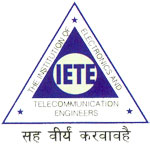
The Institution of Electronics and Telecommunication Engineers (IETE) is India’s leading recognized professional society devoted to the advancement of Science and Technology of Electronics, Telecommunication & IT. Founded in 1953, it serves more than 69,000 members through various canters, whose number is 55, spread all over India and abroad. The Institution provides leadership in Scientific and Technical areas of direct importance to the national development and economy. Government of India has recognized IETE as a Scientific and Industrial Research Organization (SIRO) and also notified as an educational Institution of national eminence. The objectives of IETE focus on advancing electro-technology. The IETE conducts and sponsors technical meetings, conferences, symposia, and exhibitions all over India, publishes technical journals and provides continuing education as well as career advancement opportunities to its members.
All our ECET faculties are Life member of this society in various cadres and conducting successfully various technical activities for the benefit of our students.
Also all our ECE students are student member of this Institution and are actively taking part in various events conducted in and around the Institution.
CONTACTS
1. Mrs.P.A.MATHINA
Branch Counsellor,ECE Dept
Email :Â mathina@psr.edu.in
2. Ms.M.INDHUMATHI
Member,ECE Dept
Email :Â indhumathi@psr.edu.in

The Madras Management Association(MMA) Student Chapter was started on 23rd September 2011 with the aim of exchanging ideas,thoughts of the student in an elaborate manner.
MMA Student Chapter organizes special lectures and workshops in college premises by inviting personalities from industries regularly.
CONTACTS
1. Ms.S.SARANYA JEGAJOTHI
Coordinator,MBA Dept
Email :Â saranyajegajothi@psr.edu.in
2. Mrs.S.REKHA
Member,MBA Dept
Email :Â rekha@psr.edu.in

“I believe in innovation and that the way you get innovation is you fund research and you learn the basic facts”. — Bill Gates
“Without change there is no innovation, creativity, or incentive for improvement. Those who initiate change will have a better opportunity to manage the change that is inevitable”. — William Pollard
Aim of Innovation Cell :
The aim of this action plan is to engage learners and Faculty with practice that is innovative, high quality, relevant, flexible, achievable, efficient, engaging, timely, instructive and appropriate.
CONTACTS
Dr.R.MADAVAN,
Associate Professor,
Dept.of Electrical & Electronics Engineering,
Overall In-Charge for Innovation Cell,
PSR Engineering College,
Sevalpatti, Sivakasi – 626 140,
Virudhunagar District,
Tamil Nadu, India.
Email :Â madavan@psr.edu.in
| Activities | II,III & IV UG/PG | I Year UG/PG |
|---|---|---|
| Commencement of Classes | 29.11.2017 | 03.01.2018 |
| Internal Assessment Test - I | 18.01.18 - 20.01.18 | 12.02.18 - 14.02.18 |
| Internal Assessment - II | 01.03.18 - 03.03.18 | 14.03.18 - 16.03.18 |
| Pre-Semester Exam | 19.03.18 - 24.03.18 | 09.04.18 - 14.04.18 |
| Practical Exams | 26.03.18 - 30.03.18 | 16.04.18 - 21.04.18 |
| Last Working Day | 30.03.18 | 21.04.18 |
| Start of Semester Exams | 04.04.18 | 25.04.18 |
Lorem ipsum dolor sit amet, consectetur adipiscing elit, sed do eiusmod tempor incididunt ut labore et dolore magna aliqua.